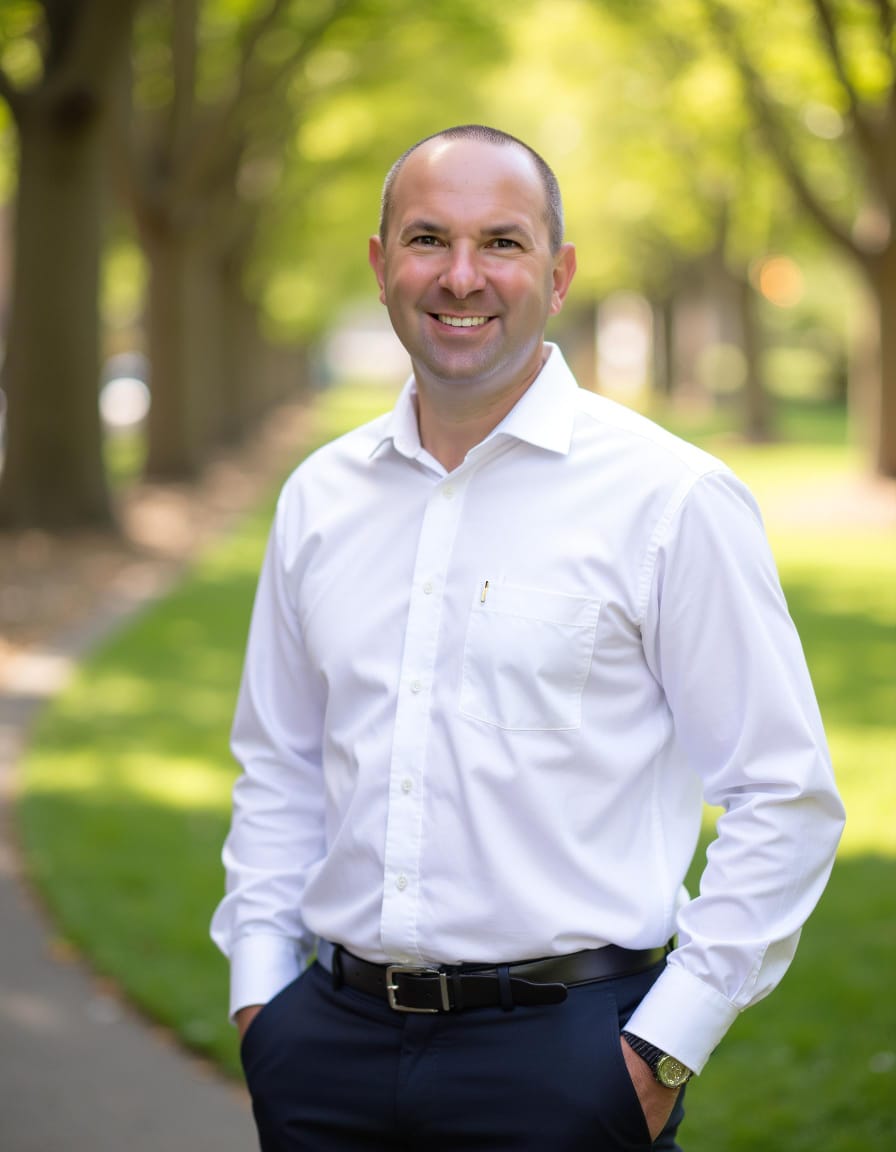Before the workday begins and his phone starts ringing, Frank Cardia already knows what needs to be done. Every night, he writes a list by hand—five items, each labeled with a number. The “1” tasks are the ones that can’t wait, and he tackles those first thing the next morning, even if they’re the most uncomfortable.
It’s a habit that may seem simple on the surface, but reveals a lot about how Cardia approaches his work. He stays organized and intentional about how he spends his time, and that has contributed to his success in an almost 30-year financial career. Whether it’s investing, managing client relationships, or working through major business decisions, values like structure, honesty, and consistency have formed the backbone of his leadership style and ultimately, his firm.
Getting a Start with Day-Trading in the ‘90s
Cardia started working in the financial services industry in 1996. He entered the field as a Registered Representative, where he handled securities transactions and communicated directly with investors. In those early years, he became deeply involved in the equities market, where he built a multimillion-dollar book of clients. He also became highly knowledgeable in a wide range of investment vehicles, including stocks, bonds, options, and fixed income products.
In the beginning, Cardia’s business model and investment strategy centered around short-term trades. He was actively involved in day-trading, which involves making investment decisions based on short windows of time and attempting to capitalize on small price movements. Although day-trading had its part in his early business model, he later shifted away from it, seeing more potential in another area.
Recognizing the Value of Long-Term Management
After gaining experience in short-term investment methods, Frank Cardia began to see the value in managing assets over the long term. As his understanding of financial planning continued to grow, he made a deliberate choice to move away from day-trading and toward long-term asset management instead. This altered his entire investment philosophy and the direction of his business.
As part of that transition, he became a licensed Series 65 Financial Advisor, a designation that carries a fiduciary responsibility to act in a client’s best interest. He also revised his business model, changing the way he worked with clients. Rather than making frequent, time-sensitive trades, he started focusing on strategies that were designed to hold up well into the future. Long-term asset management became the new focus, and everything else was adjusted accordingly to support it.
Maintaining a Private Client Business Throughout the Decades
Throughout his career, Cardia has consistently maintained his own retail client business. Even as his role expanded into more complex areas like private equity and venture capital, he continued to work directly with individual investors. Most of the people he serves are high-net-worth individuals, based both in the United States and abroad, and many of those relationships have lasted more than 15 or even 20 years.
Cardia hasn’t focused on branding, advertising, or digital outreach, nor has he relied on public-facing strategies to grow his client base. Instead, the number of people he serves has continued to grow organically over the past decade, with the majority of new clients coming from direct referrals. According to Cardia, if he’s on the phone with someone new, there is about a 90 percent chance that the connection was made through a mutual friend or existing client.
To build that kind of trust with clients, he focuses on being honest with them. He believes that clarity matters more than comfort, and that honesty—especially when it’s uncomfortable—is what helps relationships last. In his mind, putting the client’s needs ahead of his own is not optional, but essential. This isn’t a business tactic, but a reflection of his values.
Naturally, some of Cardia’s long-standing clients have become close over the years, and in many cases, friendships have developed naturally. Even in these situations, he’s careful to set and maintain professional boundaries, seeing clients as clients first, and as friends second.
Managing Private Equity and Structuring Funds
Outside of his work with individual investors, Cardia has played a significant role in private equity and venture capital. Before he co-founded Augurey Ventures, he managed multiple private equity funds, where his responsibilities included not only investing capital, but also overseeing operations and structuring the funds themselves.
Throughout the course of his career, he has helped manage more than $1 billion worth of funding and investment transactions. He has a broad range of experience in areas that includes operations, management, and the formation of private equity fund strategies.
Cardia’s approach to financial risk is old school. He relies on careful calculations and structured processes to make decisions, and his background in both public markets and private investing allows him to approach high-stakes financial decisions with a clear, methodical point of view.
Taking a Team-Based Approach to Goals and Growth
Inside his business, Frank Cardia supports his team with frequent goal-setting and reviews. Instead of following a traditional structure, like setting yearly goals and checking back after twelve months, the group breaks things down into smaller timeframes, coming together for what Cardia calls a “goal workshop.” During these meetings, they review one-month and three-month targets, checking for progress. These regular check-ins create a stronger sense of accountability and make it easier to adjust course if needed.
The kind of people Cardia surrounds himself with is just as intentional. His circle of partners and colleagues includes people who are not only professional, but also comfortable offering and accepting constructive criticism when something isn’t working. Respectful, honest conversations are welcomed within the group, which helps the entire team get better together.
Cardia doesn’t claim to be an expert in technology, often joking that he’s “a dinosaur” when it comes to digital tools and platforms. Even though he doesn’t handle the technical side himself, he knows how important it is, crediting his back office team for constantly improving the company’s platforms and processes to keep everything running smoothly.
Just like Cardia’s clients place their trust in him, he also places his trust in his team to do what needs to be done. While he focuses on planning, strategy, and client relationships, his team takes care of the systems that support it all.
A Reputation Built on Honest Relationships
There is no marketing plan behind Frank Cardia’s reputation, no carefully written messaging or public-facing campaign meant to raise visibility. He doesn’t use promotional tools or outside methods to influence how people view him, but hopes that the way he treats others speaks for itself. His good standing with his clients comes from years of standing by the same values and intentions—no matter how much his business has grown.
Instead of focusing on how things look from the outside, he puts his energy into doing what’s right in each individual conversation and decision. For him, earning trust doesn’t come from saying the right thing, but from being consistent even when it’s hard. Cardia believes that when you treat people right, your reputation will take care of itself, and you won’t need to worry about managing your image because it will be reflected in the relationships you build and the results you deliver.
Staying Grounded in a Fast-Paced Industry
In nearly 30 years of work, Frank Cardia has seen a lot of change, both in the financial world and in the way business is done. He’s worked through rising and falling markets, helped manage over a billion dollars in capital, guided long-term portfolios, and been directly involved in multiple private equity funds. The numbers are big, and the pace is often fast, but through it all, his methods and mindset have stayed the same.
Whether it’s writing a nightly to-do list, putting the hardest task at the top, or checking in regularly on short- and mid-term goals with his team, his habits continue to be the most helpful guides. He hasn’t adjusted his process to follow industry trends or changed direction based on what’s popular. Instead, he sticks to what works: taking care of the people he serves, facing hard things early, and doing the right thing, even when no one is watching. For Cardia, those values are a big part of the reason he’s been able to create a lasting, successful career.





























